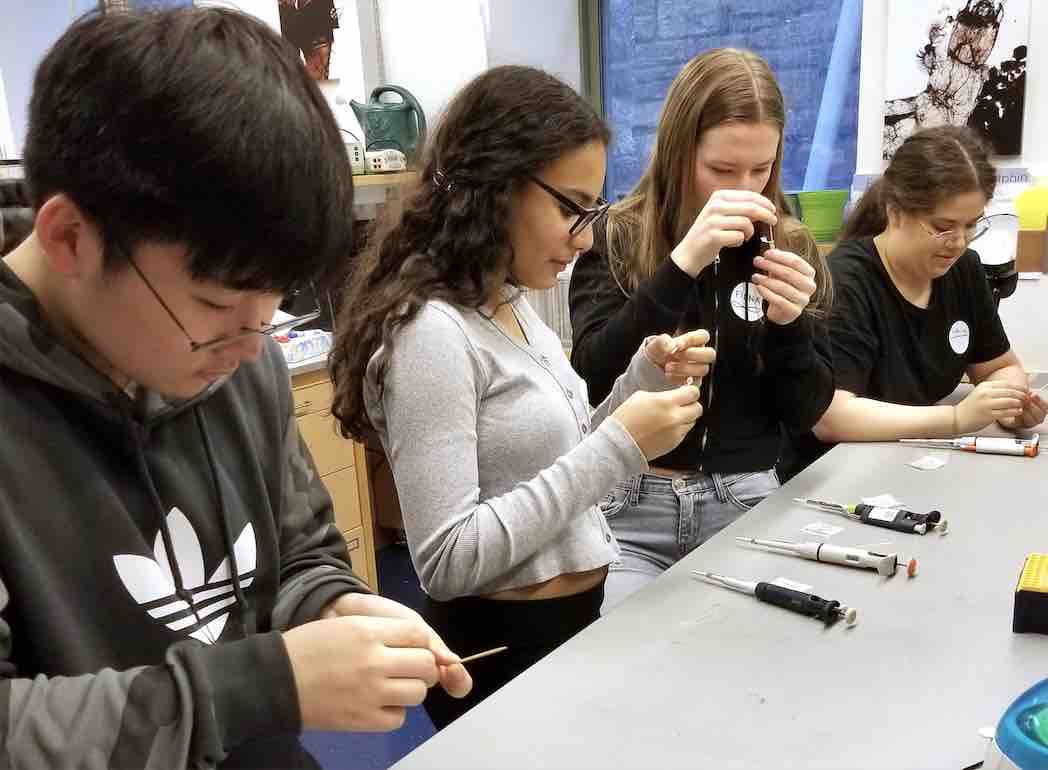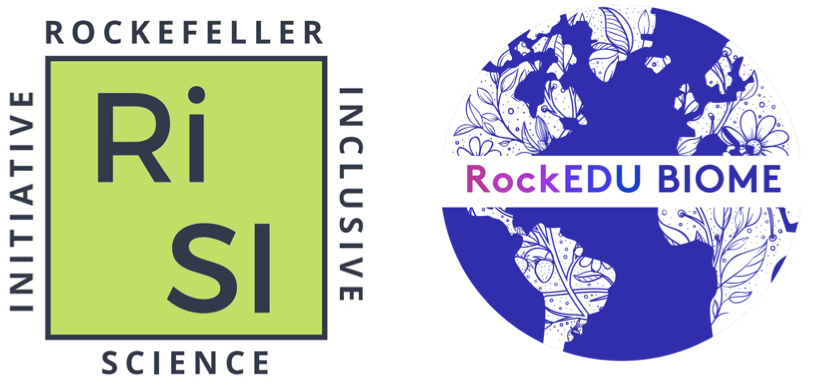What does it mean to be a "good" scientist?!
Download and print out our facilitation resource from the Save & Share Menu.
This activity was part of an event led by RockEDU BIOME (Building Interactive Opportunities for Mentorship Education) and RiSI (The Rockefeller Inclusive Science Initiative) on the topic of “What does it mean to be a “good” scientist?!” In this event, we discussed the importance of solid mentorship skills and the negative impacts (for trainees and science as a whole) of maintaining a narrow focus of what “success” means in science. In the context of this discussion, participants were instructed to read case studies on mentorship and pinpoint the areas where the mentor engages in gate-keeping behaviors that exclude students from pursuing or having access to research.
This work is licensed under CC BY-NC 4.0.
In this activity, participants are split into two groups where they will spend 20 minutes addressing one of two prompts (either: Caleb and Maya or Sam and Maria).
Each prompt is accompanied by:
-
- Articles: Specific articles were selected to frame the discussion and get participants to start thinking about how skills that differ from those traditionally valued can contribute to success in science.
- Case Study: Two examples of problematic behavior in mentorship are shared here. Items here vary from overtly discriminatory to more nuanced micro-aggressions.
- Case Study Answers (shared only in answer key): Within each case study shared in the answer key, you’ll find our track changes that include all of the interactions/behaviors that we “flagged” as problematic or felt were important things to highlight and keep an eye on!
- Contextualization (shared only in answer key): After each case study, we share both the broader idea behind why these scenarios were selected as well as the specific barriers that were addressed in these examples. None of these areas where barriers may arise are reflective of whether someone is “good” at science. Yet, failing to accommodate individuals based on these areas (and identities) may dictate who decides to pursue science and who is made to believe that science is not for them. By maintaining a narrow focus on who can do science and what success looks like, we are disadvantaging anyone who falls outside of what a mentor considers “normal”.
- Discussion Questions: Discussion questions are posed as a takeaway for each case study and any opportunity to get to the root of the problematic behaviors and the appropriate actions that a mentor should take in these situations.
Activity Instructions:
- In small groups read the shared articles. (~5 minutes)
- Go through a case study with your group mates using track changes. Add comments to the case study on the behaviors and events that feel problematic and ultimately contribute to scientific gatekeeping. As you work through this, chat with your team members about where you see signs of the mentor deciding what “good science” is. (~10 minutes)
- Spend some time working through the discussion questions and figuring

High school students perform a PCR activity at the RockEDU lab.
out what steps a mentor should take to promote multiple “ways of knowing” in science. (~5 minutes)
- If you have split up into smaller groups for this activity, share your reflections to your case studies with your larger group. After all perspectives have been shared, key takeaways surrounding core questions can be answered in Padlet. Here is an example of the questions that BIOME and RiSI discussed.
Articles
“How managing a chronic illness gave me skills that would strengthen my PhD”
“How pirouettes and pliés prepared me for a research career”
Case Study #1 Caleb and Maya
Caleb is mentoring a high school student named Maya. Maya is passionate about a range of things including: Physics, soccer, and reading science fiction novels. Maya is currently enrolled in a New York City DOE public school and immigrated to the U.S. 3 years ago with her family. Caleb is a first-time mentor and is eager to show Maya how science should be done. When they first meet, Caleb tells Maya about himself and shows her around the lab space. Maya will be joining Caleb’s existing group of mentees—all of whom are born and raised in New York City. Maya is so thrilled to finally have the chance to study her passion at her dream institution, but every time she shares her desire to become a physicist, Caleb reminds her that “physics isn’t for everyone” and that she may prefer Biology. Maya feels hurt by this—all of her teachers have marveled at how quickly she understands core principles of Physics and her infectious energy during class discussions—but respecting authority is a core principle that her parents instilled in her, so she does not push back. Every month Maya has a lab meeting with her mentor and fellow mentees where they share their progress as written via short summary. Maya reads hers aloud, and some of her labmates snicker—she mixed up her verb tenses again. Maya speaks 3 languages, and sometimes she mixes things up. She wishes that she could get some 1-1 time with Caleb so that she could share her summaries in a way that feels more comfortable, but Caleb feels strongly about treating everyone equally, so instead of talking with Caleb about other ways to share her progress, Maya decides to spend some time after lab practicing grammar exercises. She continues to excel in her studies and be a voracious reader, but research in practice just isn’t working out. Being a first generation college student, she doesn’t have much direction at home, and she wonders if maybe she was wrong about science being for her.
Discussion Questions:
In thinking about what “good science” means, how do you think Caleb defines good science?
What would make Caleb a stronger mentor?
What advice would you give Maya in this situation?
What does it mean to “treat everyone equally”, and how does this play a role in equitable mentorship?
What are some takeaways you have from this discussion?
Case Study #2 Sam and Maria
Sam is an undergraduate student interested in scientific research, but has never had the opportunity to do research before. They apply for a summer research position working with Maria, a postdoctoral fellow who is excited to teach and mentor the next generation of scientists. When reading through applications, Sam’s application stands out due to their enthusiasm for science, but upon further review Maria realizes that their grades are not to the same level as other applicants. After meeting with a few of the other students who applied, Maria decides to interview Sam, as they seemed the most excited about the research opportunity in their application. During the interview, Maria asks Sam about their career goals, and they say that they are interested in pursuing a career in scientific research. Maria asks about Sam’s grades, specifically in classes related to the research topic. Sam describes how they have been working long hours while attending school. Maria asks Sam if they would need to work an additional job along with working in the lab, and Sam says that they are not sure and it would depend on the stipend. Maria asks Sam about their job, and Sam describes that through that job they have developed their ability to manage time and multi-task. After the interview, Maria reflects on all the candidates and realizes that Sam was the only applicant she interviewed who is interested in a career in scientific research. However, Maria is not sure if the position is the best fit for Sam because the stipend is not enough money to live off of. Maria is also worried that Sam might not be able to relate to the other undergraduate students working in the lab, who have much more experience and often work extra hours to make progress on their experiments.
Discussion Questions:
In thinking about what “good science” means, how do you think Maria defines good science?
What would make Maria a stronger mentor?
If you were interviewing Sam, what questions would you want to include in your interview?
How would you mentor Sam in the lab?
How can Maria foster a more inclusive lab environment?
What are some takeaways you have from this discussion?

